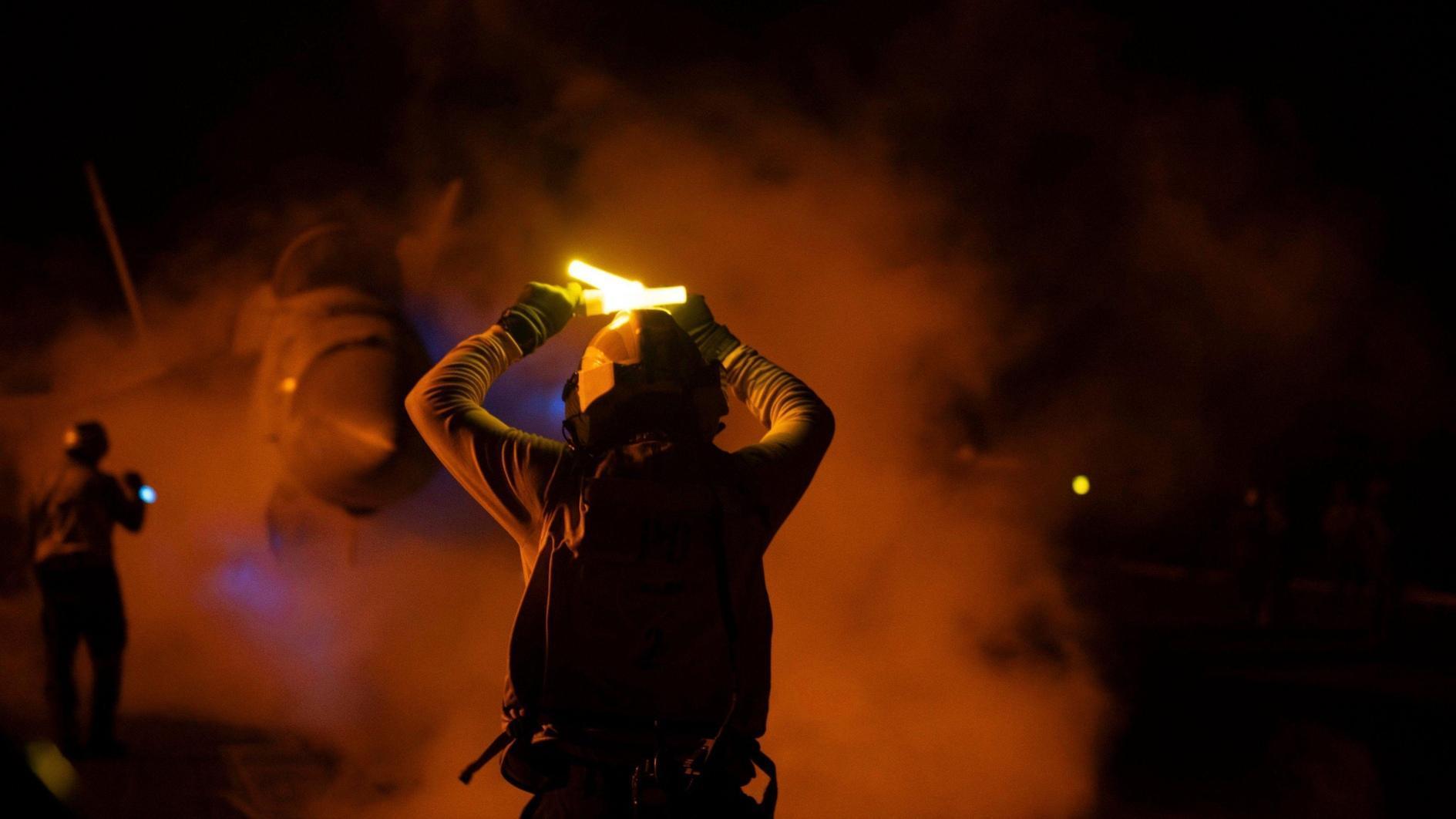
The U.S. military launched retaliatory air strikes against Iranian forces and Tehran-backed militia groups in both Iraq and Syria on Friday, following a recent drone attack that killed three American soldiers at a remote base in Jordan.
The extensive air attacks were ordered in response to the deaths of the soldiers last Sunday in a drone strike blamed by Washington on Iran-backed forces.
"Our response began today. It will continue at times and places of our choosing," U.S. President Joe Biden said in a statement.
"The United States does not seek conflict in the Middle East or anywhere else in the world. But let all those who might seek to do us harm know this: If you harm an American, we will respond," he added.
Both Washington and Tehran have sought to avoid an all-out war. The United States is keen to deter further attacks while avoiding direct conflict with Iran and none of the initial attacks struck Iranian territory.
The strikes targeted the Islamic Revolutionary Guard Corps' Quds Force as well as "affiliated militia groups," with American forces hitting "more than 85 targets, with numerous aircraft to include long-range bombers flown from United States," the U.S. Central Command (CENTCOM) said in a statement.
"The airstrikes employed more than 125 precision munitions," CENTCOM said, adding that the targets included command and control and intelligence centers as well as rocket, missile and drone storage facilities belonging to militia groups and Iranian forces "who facilitated attacks against U.S. and coalition forces."
The Syrian Observatory for Human Rights war monitor said strikes in eastern Syria killed "at least 18 pro-Iran fighters."
The monitoring group told AFP that at least 26 important sites housing pro-Iranian groups have been destroyed, including weapons depots, in ongoing raids striking a large swath of eastern Syria.
'Dignified transfer'
Biden — who had vowed to strike back against those responsible for the drone attack in Jordan — earlier Friday attended a solemn military ritual at a Delaware air base for the return of the three dead soldiers.
Six servicemen wearing camouflage, dark berets and white gloves marched slowly three times on and off the ramp of a huge C-5 transport plane to carry the bodies in flag-draped "transfer cases" — as the military calls caskets used in transportation — to a waiting van.
The secretary of defense, Lloyd Austin, and the chairman of the Joint Chiefs of Staff, CQ Brown, also attended what's known as a "dignified transfer" — their presence highlighting the importance, as well as relative rarity, of returning dead service members in the wake of U.S. exits from major foreign conflicts.
Although the United States is now free from its war in Afghanistan, surging tensions in the Middle East, sparked by the Israel-Hamas fighting, threaten to drag U.S. forces back into regional conflict.
The three troops killed were the first U.S. military deaths from hostile fire in the Middle East since the Oct. 7 Hamas surprise attack on Israel that sparked a deadly Israeli assault on Gaza.
U.S. and coalition troops have been attacked more than 165 times in Iraq, Syria and Jordan since mid-October with weapons including drones, rockets and short-range ballistic missiles.
Dozens of American personnel were wounded in previous attacks, many of which have been claimed by a loose alliance of Iran-linked armed groups that opposes U.S. support for Israel in the Gaza conflict and wants American troops out of the region.
Yemen's Iran-backed Huthi rebels meanwhile began targeting international shipping in November, sparking U.S. and British air strikes aimed at reducing their ability to hit commercial vessels.
Two SEALS — among the most elite special forces in the U.S. military — were declared dead after being lost at sea during an operation to seize Iranian weapons bound for the Huthis on a ship off the coast of Somalia.
Iraq condemns attacks
Iraq on Saturday condemned retaliatory U.S. strikes on its territory as a "violation of Iraqi sovereignty", warning of "disastrous consequences" for the country and beyond.
Friday's strikes in western Iraq near the Syrian border are a "violation of Iraqi sovereignty" and will bring "disastrous consequences for the security and stability of Iraq and the region", General Yehia Rasool, a spokesman for Prime Minister Mohamed Shia al-Sudani, said in a statement.
After Baghdad condemned the air raids, the White House said that U.S.informed the Iraqi government prior to carrying out strikes.
"We did inform the Iraqi government" in advance, National Security Council spokesman John Kirby told journalists.